Top Commercial Coffee Roasting Machines Compared for Global Buyers
In the ever-evolving world of coffee, a significant factor that influences both taste and quality is the equipment used in the roasting process. For entrepreneurs and coffee enthusiasts alike, choosing the right commercial coffee roasting machine can make all the difference in achieving the perfect roast. This blog aims to guide global buyers through a comprehensive comparison of top commercial coffee roasting machines available in various markets. By examining key features, performance metrics, and user feedback, we will present tailored solutions for different types of coffee businesses, ensuring that you make an informed decision that aligns with your specific needs and budget.

Join us as we explore an array of options that empower your roasting journey and enhance the flavor profiles of your beloved brews.
Types of Commercial Coffee Roasting Machines: An Overview
 When it comes to the world of commercial coffee roasting, various types of machines cater to different needs and production capacities. The primary categories include drum roasters, hot air roasters, and hybrid models. Drum roasters are often favored for medium to large batch sizes, as they provide a more consistent roast and allow for greater control over the process. Their design incorporates rotating drums that evenly circulate coffee beans, facilitating a uniform roast profile, crucial for specialty coffee producers seeking to highlight unique flavor notes.
When it comes to the world of commercial coffee roasting, various types of machines cater to different needs and production capacities. The primary categories include drum roasters, hot air roasters, and hybrid models. Drum roasters are often favored for medium to large batch sizes, as they provide a more consistent roast and allow for greater control over the process. Their design incorporates rotating drums that evenly circulate coffee beans, facilitating a uniform roast profile, crucial for specialty coffee producers seeking to highlight unique flavor notes.
Hot air roasters, on the other hand, utilize a different method by blowing hot air through the beans, providing a rapid roast with minimal contact time. This type of roaster is ideal for smaller batches or businesses focusing on lighter roasts, as it allows for quick adjustments and a brighter flavor profile. Hybrid models combine elements from both drum and hot air roasters, offering versatility for operators who want the option to change their roasting style based on their current offerings or seasonal coffee selections.
Each type of machine has its unique set of advantages, allowing buyers to choose the most suitable option according to their roasting objectives and business model.
Key Features to Consider When Selecting a Roasting Machine
When selecting a commercial coffee roasting machine, key features play a pivotal role in ensuring optimal performance and quality. One primary consideration is the roasting capacity, which varies significantly between machines. Buyers should assess their production needs—whether for a small café or large-scale operations—since the capacity directly influences the efficiency and throughput of the roasting process. Additionally, consistency in temperature control is crucial. Machines equipped with advanced thermal sensors and automated controls can help maintain uniform roasting profiles, leading to a better flavor development in coffee beans.

Another essential aspect is the machine's versatility and user-friendliness. Prospective buyers should look for models that support various roasting profiles and allow for adjustments throughout the roasting cycle. This flexibility enables roasters to experiment with different beans and develop unique flavor profiles. Moreover, features that facilitate easy cleanup and maintenance can save time in a busy roasting environment, enhancing overall productivity. By prioritizing these features, global buyers can ensure they select a roasting machine that meets their specific needs while delivering exceptional coffee quality.
Top Brands in the Coffee Roasting Industry: A Comparative Analysis
In the competitive world of coffee roasting, selecting the right machine can significantly impact product quality and business success. Leading brands such as Probat, Diedrich, and Behmor have earned their reputation by offering innovative solutions tailored to both small-scale operations and large commercial enterprises. Probat, with its unparalleled precision and consistent roasting profiles, stands as a favorite among specialty coffee roasters, while Diedrich is lauded for its compact yet powerful designs that cater to artisan roasters looking for high-quality performance in limited spaces.
Another noteworthy competitor is Behmor, which has made strides in the home roasting segment with user-friendly features and affordability, making it accessible for newcomers in the industry. Each brand has its unique strengths, catering to different market segments and roasting needs, from small business startups to established coffee houses. Comparing these top brands showcases not only their technological advancements but also how they adapt to changing consumer preferences and sustainability trends, ensuring their machines are at the forefront of the coffee roasting landscape.
The Role of Technology in Modern Coffee Roasting Solutions
In the rapidly evolving world of coffee roasting, technology has become a cornerstone in enhancing both efficiency and quality. Modern coffee roasting machines are equipped with advanced features that allow roasters to fine-tune their profiles with remarkable precision. Digital interfaces now provide real-time data on temperature and humidity, enabling roasters to monitor and adjust their roasting parameters seamlessly. This technological integration not only ensures consistency across batches but also opens the door for unparalleled creativity in flavor development.
Moreover, the rise of automated roasting solutions has transformed how coffee is processed on a commercial scale. These machines utilize sophisticated algorithms to analyze roast conditions and optimize profiles, reducing the risk of human error. This means that even small-scale roasters can produce high-quality coffee that competes with larger operations. In addition, many modern roasters can be connected to cloud-based systems, allowing for remote monitoring and adjustments. This connectivity empowers roasters to track their inventory and manage operations more effectively, streamlining workflow and maximizing productivity in an increasingly competitive market.
Comparison of Coffee Roasting Machines by Capacity
Cost vs. Quality: How to Choose the Right Roasting Machine for Your Needs
When it comes to selecting the right commercial coffee roasting machine, the balance between cost and quality is crucial. According to a recent report by IBISWorld, the coffee roasting industry is expected to grow by 6.2% annually over the next five years, reflecting a surge in consumer demand for specialty coffee. Buyers must evaluate how much they are willing to invest, as high-quality machines can range from $15,000 to $250,000. Factors such as production capacity, energy efficiency, and build quality should all be weighed against budget constraints.
**Tip:** Make sure to calculate the return on investment (ROI) based on your projected sales and roasting capacity. A machine that seems affordable upfront may cost more in the long run if it requires frequent repairs or has a lower output.
Another consideration is the type of roast you wish to achieve. Different machines offer varying levels of control over heat and airflow, which are essential for producing distinct flavor profiles. Research indicates that more sophisticated machines with advanced features can allow roasters to fine-tune their processes, resulting in a superior product that meets the growing demand for high-quality coffee.
**Tip:** Experiment with different roasting profiles to find your unique flavor signature. Investing in a machine that supports programmable profiles can enhance your product offerings and differentiate your brand in a competitive market.
Top Commercial Coffee Roasting Machines Compared for Global Buyers
| Machine Type | Roasting Capacity (kg/batch) | Average Cost (USD) | Energy Source | Material | Temperature Control |
|---|---|---|---|---|---|
| Drum Roaster | 15 | $10,000 | Gas | Stainless Steel | Automatic |
| Hot Air Roaster | 5 | $3,500 | Electric | Aluminum | Manual |
| Fluid Bed Roaster | 12 | $8,000 | Gas | Stainless Steel | Digital |
| Sample Roaster | 2 | $2,000 | Electric | Ceramic | Manual |
Related Posts
-
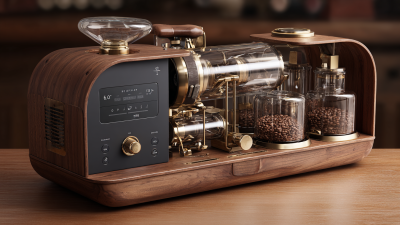
The Future of Home Coffee Roasting Innovation and Technology
-
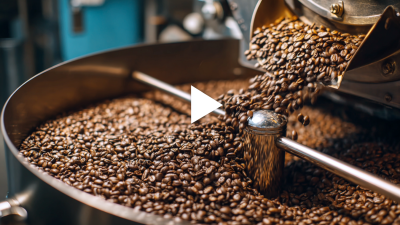
2025 Insights into Best Commercial Coffee Roaster Trends and Performance Comparison
-
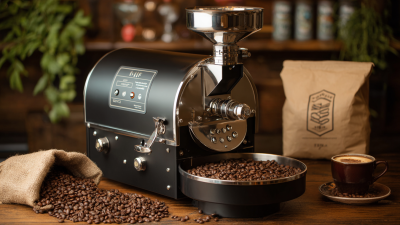
Ultimate Guide to the Best Home Coffee Roaster with 5 Essential Features for Perfect Brews
-
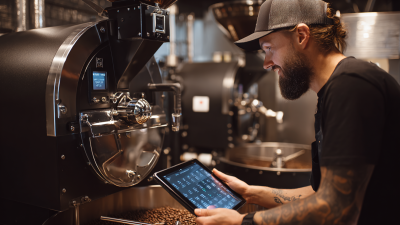
Unlocking the Advantages of Best Commercial Coffee Roasting Machines for Global Buyers
-
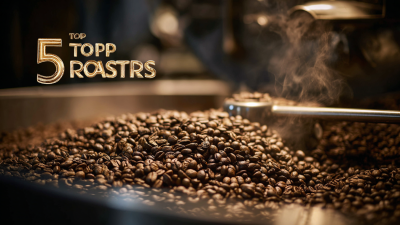
Top 5 Best Commercial Roasters: Standout Examples Driving Industry Growth by 20% in 2023
-
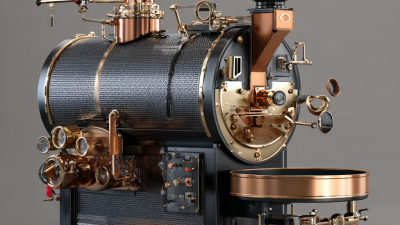
Discover the Advantages of the Best Coffee Bean Roaster Machine for Your Business
